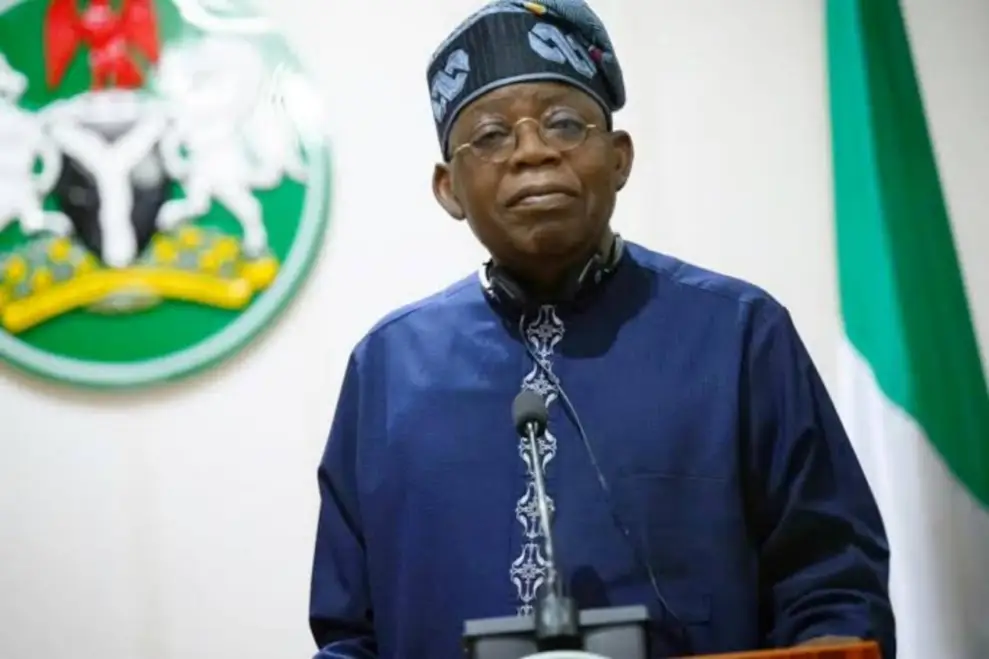The Executive Vice-Chairman of the Nigerian Communications Commission (NCC), Dr Aminu Maida, has confirmed that President Bola Tinubu has removed the five per cent excise duty on telecommunications services under Nigeria’s new tax laws.
This decision is expected to reduce cost pressures on telecom subscribers and encourage broader economic growth in the digital economy.
Speaking during an interactive session with journalists in Abuja on Tuesday, Maida explained that the levy, which had earlier been suspended, has now been fully scrapped by the president.
“The excise duty, it was the 5 per cent or so, that is no longer there,” he said. “Before it was suspended, but now the president has been magnanimous to remove it entirely. I was in a room when it was raised, and he said, No, no, no, we cannot put this on Nigerians. I was very pleased when the bills came out and we saw his words were followed through.”
The excise duty had originally been introduced in 2022 under former President Muhammadu Buhari’s administration. However, it faced strong resistance from industry stakeholders and the public.
The backlash eventually led to its suspension in July 2023 by President Tinubu, who raised concerns about its potential impact on consumers and the economy.
The removal is part of a wider tax reform contained in a bill titled “A Bill for an Act to Repeal Certain Acts on Taxation and Consolidate the Legal Frameworks relating to Taxation and Enact the Nigeria Tax Act to Provide for Taxation of Income, Transactions, and Instruments, and Related Matters.”
Maida noted that the telecom sector remains central to Nigeria’s economic activities and digital inclusion. He stressed that the decision will help reduce pressure on subscribers while boosting growth opportunities for operators and investors.
He added that the NCC is currently implementing reforms guided by transparency, accountability, and stronger consumer protection. One key initiative is the adoption of behavioural economics alongside traditional regulatory oversight.
This approach, he said, involves making more information publicly available to enable consumers and operators to make better decisions.
As part of this plan, a public map of network performance is expected to be released in September. The map will display independent data on download speeds, latency, and other quality indicators.
“There will also be a quarterly network performance report based on user data,” Maida said. “It extends accountability beyond mobile operators to also include infrastructure providers who play a critical role in reliability.”
He also highlighted the importance of corporate governance in strengthening the telecom sector. “Transparent, well-governed companies attract investment and perform better,” he explained. According to him, the ultimate goal is to build a Nigerian telecom company that is wholly owned, well-run, and competitive globally.
The NCC boss cited reforms such as the conclusion of the National Identity Number (NIN)-SIM audit, the resolution of USSD debt disputes, the transition to end-user billing, and the launch of a Major Incident Reporting Portal as evidence of progress within the industry.
He further stated that the current telecom policy, established in 2000, had achieved its initial purpose of breaking monopolies and introducing competition but now requires an update.
“In the early 2000s, it was about voice and text. Today, it is about internet connectivity and the emerging technologies that depend on it – artificial intelligence, internet of things, remote sensors, and augmented reality. The policy did not fail, but we must evolve for new realities,” he said.
According to Maida, competition remains an important factor in keeping call tariffs relatively low. He pointed out that despite recent adjustments, the highest call rate in the market is about N18 or N19 per minute, compared to N50 per minute in the early 2000s.
On the issue of failed electronic top-ups and billing concerns, Maida disclosed that the NCC has partnered with the Central Bank of Nigeria (CBN) to establish a joint task force.
The task force has developed a new operational framework to standardise recharge processes. In addition, Tier-1 audit firms were engaged to investigate operators’ billing systems following numerous complaints about data depletion.
The audit results, he explained, showed no deliberate manipulation of consumer data. Instead, consumer dissatisfaction was linked to factors such as background app usage, device settings, and complex tariff structures.
“We are not trying to punish anyone,” he said. “We want the industry to grow, so consumers are happier, operators perform better, and the government benefits from a broader tax base.”
At the same session, the NCC’s Director of Consumer Affairs Bureau, Freda Bruce-Bennett, gave practical advice to subscribers on how to manage their data usage more effectively. She encouraged Nigerians to disable autoplay on social media, limit background data usage, delete unused apps, activate data-saving modes, and connect to Wi-Fi whenever possible.
Bruce-Bennett also shared updated statistics about Nigeria’s telecom sector. She noted that the country currently has 172 million active telephone subscribers, with 141 million internet users, representing 81.9 per cent of the total. Out of these, 105 million are broadband users, highlighting Nigeria’s growing dependence on internet services for communication, business, and education.
Meanwhile, NCC’s Director of Public Affairs, Nnenna Ukoha, underscored the role of the media in amplifying the commission’s policies and initiatives to the public.
“You are the ones that transmit and convey our transformative policies to the people of Nigeria,” she said. “Therefore, I invite you to be open and talk to us freely. We are here to collaborate with you.”

